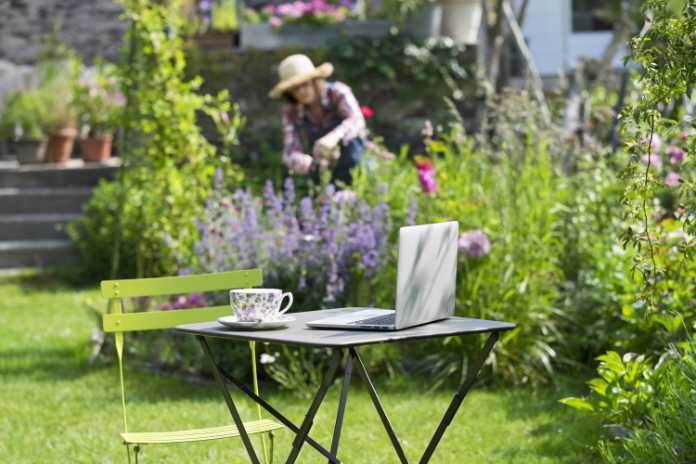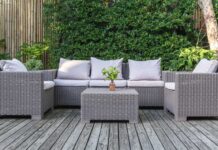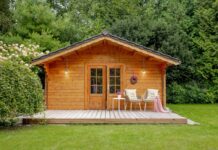As working from home has become the norm for so many of us, our garden needs are set to change.
So says award-winning garden designer Andrew Duff, managing director of Inchbald School Of Design, who won a bronze medal for his first show garden at Chelsea last year.
“For me, garden design has changed more in the last six months than it has in the last 60 years,” he reflects. “It’s no longer the space people come home to for a gin and tonic and to watch the sun go down. They want somewhere to have coffee in the morning, somewhere to have lunch, a green calm space just to be.”
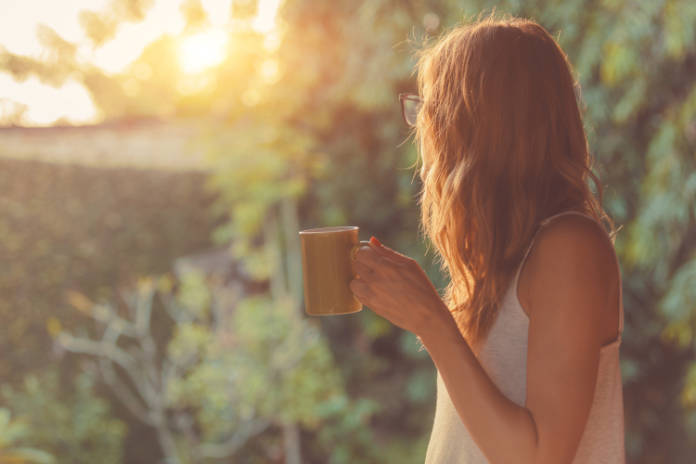
The aesthetics of gardens are changing dramatically, transforming into functional working spaces, somewhere slightly more overgrown, floppy and more attractive to wildlife, he adds. Seating may have to accommodate both a laptop working space for the warmer months, and comfortable seating with plenty of cushions when work is over.
Garden trends
So, how will the extra time we have in the garden affect future trends?
Keen on green
“Green is the colour the eye recognises first, so inherently we relax with that. A good green selection of plants with a balance of different leaf textures gives us that feeling of freshness and growth, which is what people are looking for as we move through the seasons,” says Duff.
“It may mean dark green backgrounds with acid greens and yellows to create a fresh and verdant look. A taxus background, with large-leaved textures of angelica and persicaria. It’s not about a riot of colour.
“In among the green palette, people will want things that give them the joy of scents, such as rosemary and sage.”
Lawn comeback
Duff has found that hard landscaping is being replaced by lawn. “I think lawns are making a comeback. The lawn has been a really usable space, particularly if you have children, and people now have more time to maintain their lawn and are finding it therapeutic to mow.”
Subtle sculpture
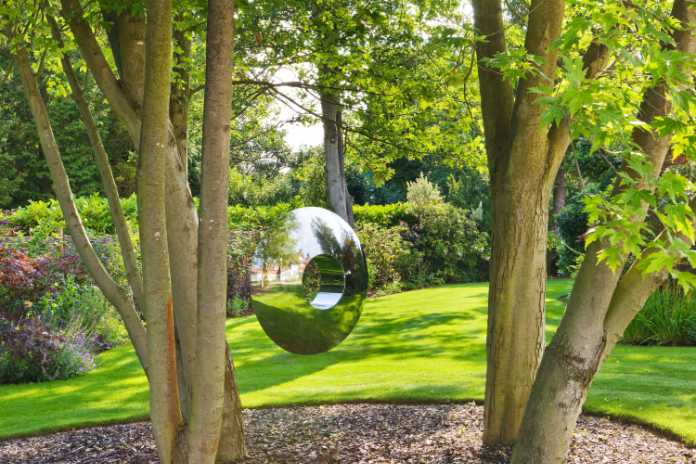
“We’ve had a lot of enquiries for more reflective and contemplative pieces of sculpture,” says award-winning sculptor David Harber (davidharber.co.uk), whose work has been exhibited at RHS Chelsea Flower Show. “People are seeking calm and sophistication, perhaps represented in a Zen-like water feature. People want unfussy, serene and beguiling.
“So many people have taken up yoga and meditation, they want a place where they can stand and be, where they are back in touch with nature.”
Rich shades
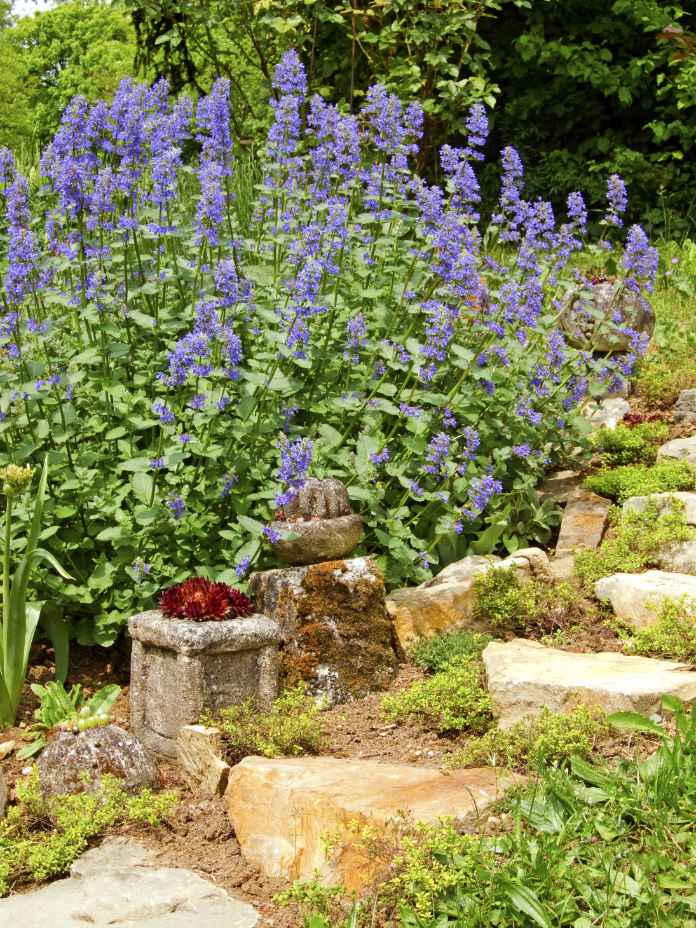
“People are after really subtle, deep colours that are quite jewel-like. If you’ve been stuck at your computer screen all day, this subdued rich palette that’s gentle on the eye is becoming important,” says Duff.
“We are talking deep red persicarias and the deeper blues of catmint, but overall a much more natural feeling in planting. As people are in the garden a lot more, everything is more ongoing. People are going out every day and picking off dead leaves and deadheading, rather than that being a job for the weekend. It’s less of a chore and more of an enjoyment.”
More balcony food
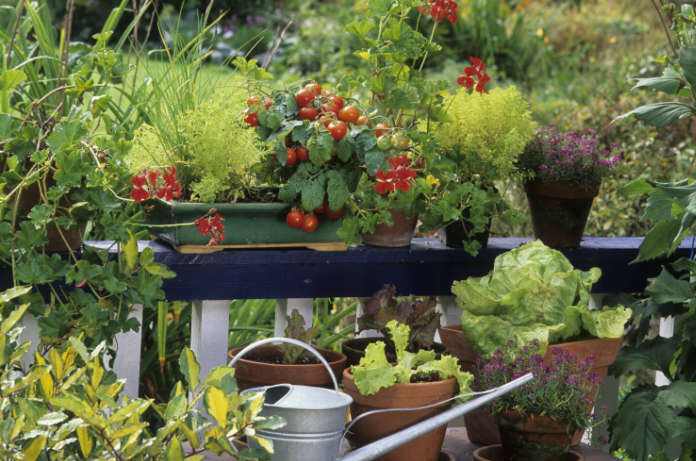
“We are going to see less containers filled with annual colour – petunias and geraniums are on their way out. We are going to see balconies overloaded with tomatoes and runner beans, with nasturtiums running through them,” Duff predicts.
Container changes
“Seasonality is really important, which is where growing vegetables in containers is really going to take off, along with the rotation of vegetable crops,” says Duff. “Heritage vegetables are coming back – the purple beans, the purple carrots – and for people who’ve got children, that’s exciting.”
There will be a return to terracotta and timber planters, rather than mass produced plastic tubs which are less eco-friendly, he predicts.
Sustainable landscaping
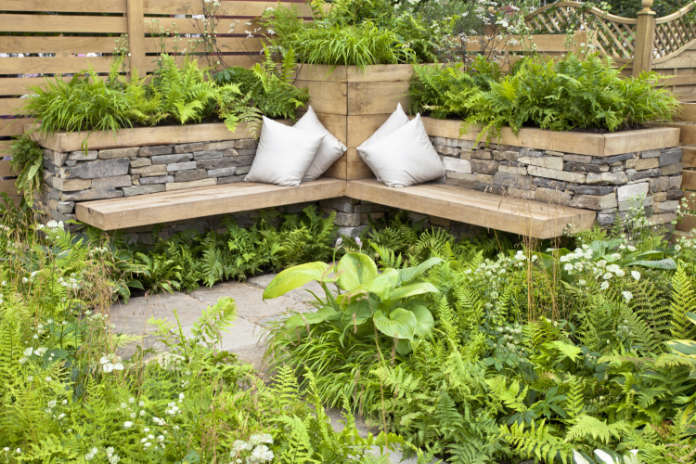
“People are much more aware of the sustainability of products and their provenance. There’s a great drive to buy British. They want to buy locally and are into supporting local businesses and nurseries,” says Duff. “People want a richness in material. Machine-cut stone is slowly moving away and the Ripon Yorkstone feeling is coming back, along with the joy of gravel.”
Working for wildlife
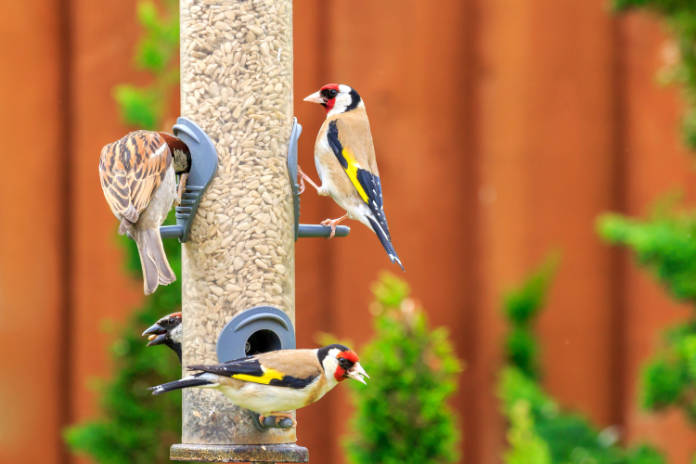
“Wildlife has become very important and people have become surprised how much wildlife there is in their garden,” says Duff. “People won’t be sweeping everything up to within an inch of its life, but will leave things informal and relaxed to encourage wildlife. It’s the overall eclectic, slightly overgrown look that people are adopting.”
Moving forwards
Join a webinar panel discussion event, Changing Landscapes: The Future Of Nature And Our Homes: Design, the second in a series, on September 10 at 2pm, featuring David Harber on the panel. For details visit davidharber.com/news/webinar.htm.
Read more: How to keep your garden going in autumn























































